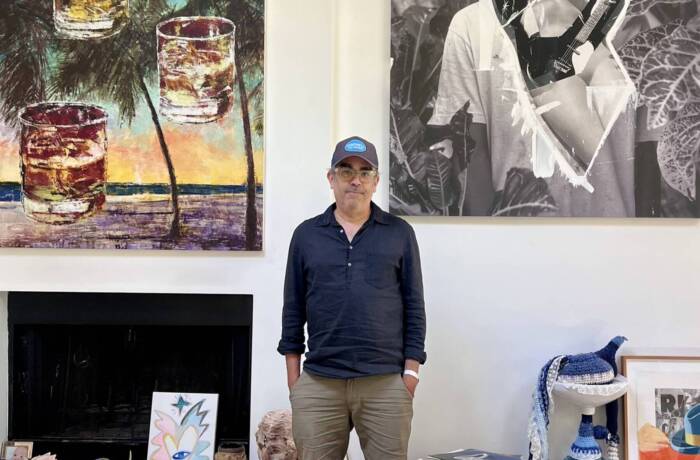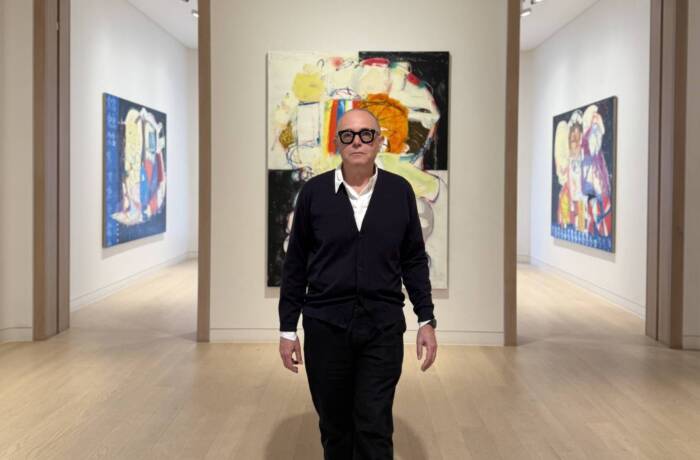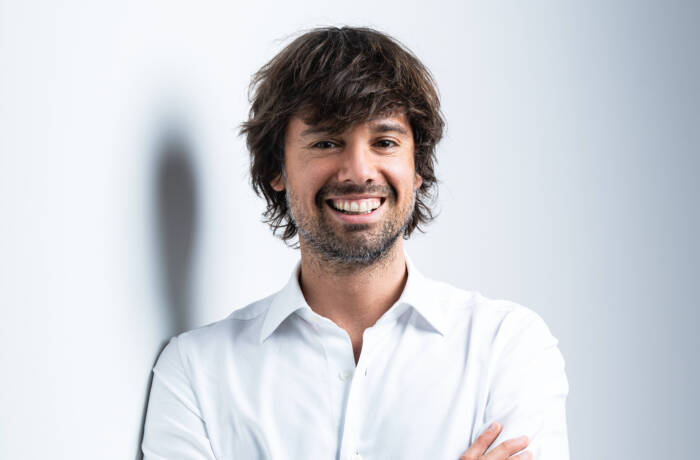
Nicholas Party portrait, 2022
In our ongoing online monthly series, LUX’s editors, contributors, and friends pick their must-see exhibitions from around the globe
Umberta Beretta, philanthropist, art collector and curator
I would recommend Nicolas Party’s exhibition at the Poldi Pezzoli Museum in Milano. I am directly involved and partially sponsored the exhibition. It is called Triptych. Nicolas party produced eleven new works all inspired by the old masters at the Poldi Pezzoli Museum. The exposition has been organised in partnership with Kaufmann Repetto gallery and will run until the end of June. In the museum Nicolas Party was especially impressed by Mariotto Albertinelli‘s triptych. The exhibition is very respectful of the museum but very connected to the surrounding works.
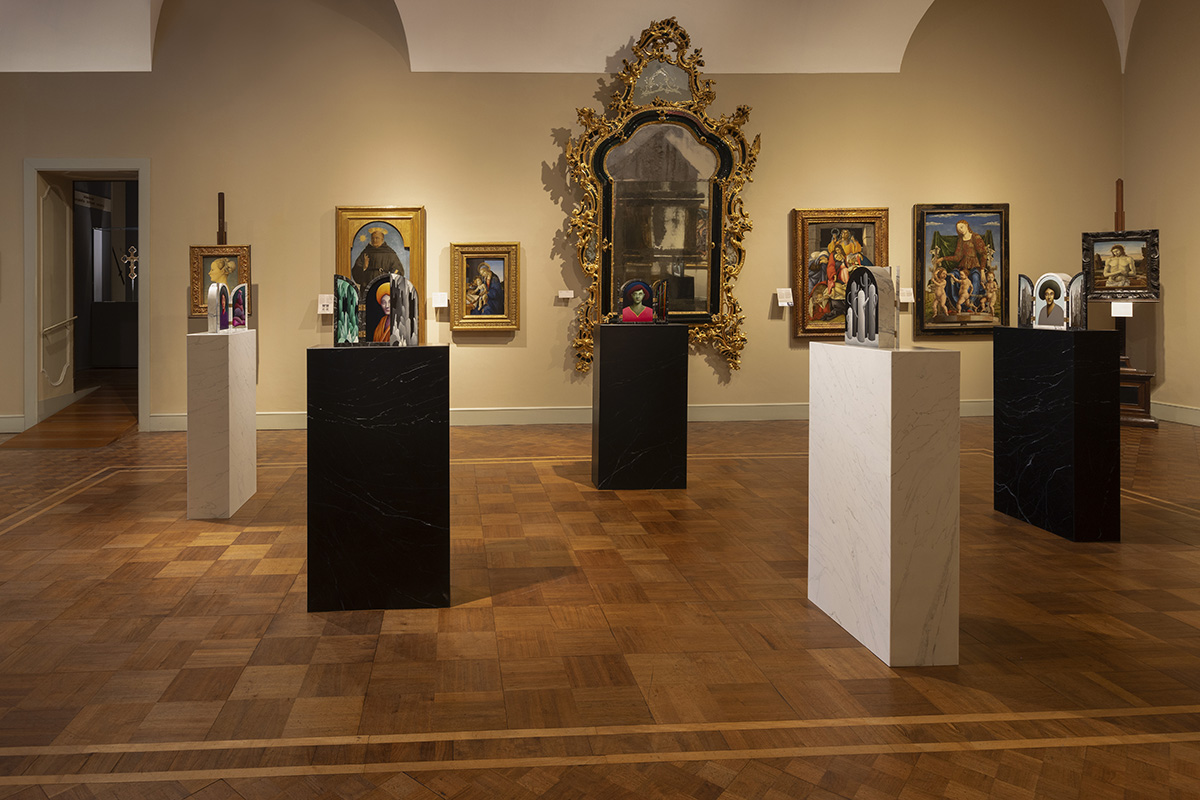
Nicolas Party’s exhibition at the Poldi Pezzoli Museum in Milan is showing until June 27 2022
Together with the triptychs, the artist created six oval works inspired by his beloved Rosalba Carriera, an author also present in the Poldi Pezzoli Museum. This exhibition is a chance to see how contemporary art can very well be inspired by the works of the past and of how a brilliant contemporary artist can create something totally new whilst giving homage to the ancient.
Follow LUX on Instagram: luxthemagazine
The artist has been very generous with sharing what inspired him and by making some very clear references that can be followed whilst looking at the exhibition. It is a great chance to see something new and discover something old at the same time.
Cheryl Newman, artist, curator and photography consultant
I’m running a workshop in Norway in a couple of weeks so will finally get inside the 60-meter-high new Munch Museum on Oslo’s trendy waterfront. Love it or hate it, this recycled concrete and steel sustainable building is a long-awaited landmark and new home for the enormous collection of Norway’s greatest painter.
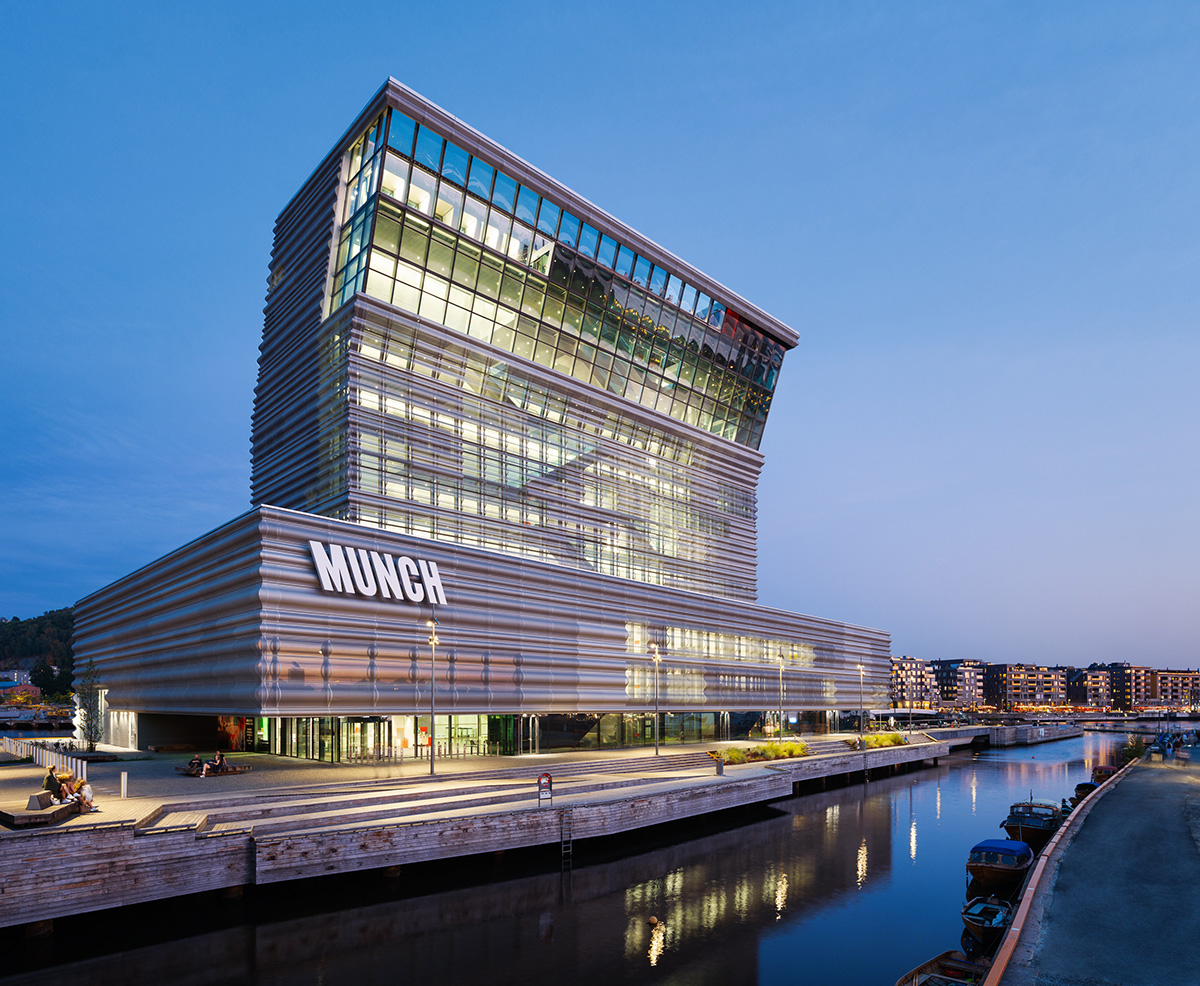
Munch museum, Oslo
Munch was a progressive and challenging artist, so it seems apt that his new home should incite a bit of debate. I have been moved by Munch’s depictions of loneliness and death since my student days, so I’ll head straight to the Sick Child paintings. Munch’s work is unflinching and confronts the fragility and anxiety of human consciousness which is as relevant now as when Munch was a contemporary.
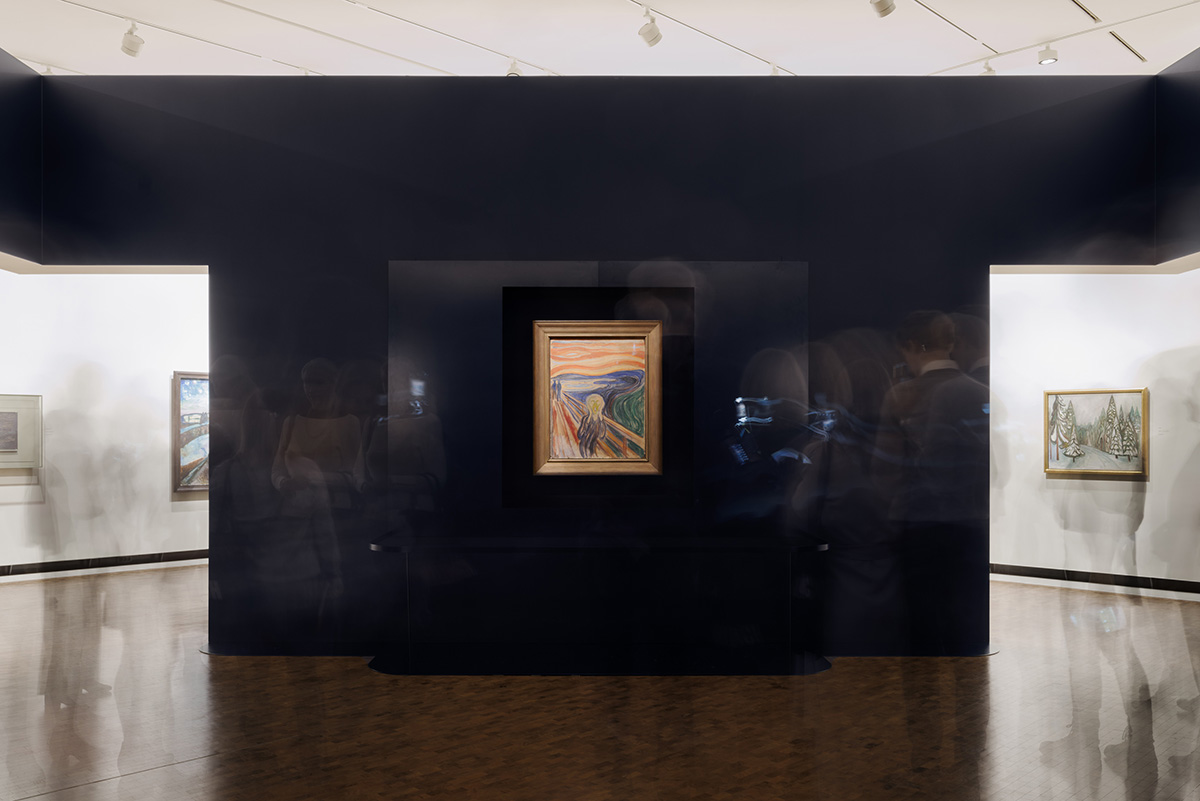
One of Munch’s most renowned paintings ‘The Scream’ on display at the Munch museum
It’s also interesting to see Munch shown with artists directly influenced by his work and if you are in Vienna before June 19th, In Dialogue at The Albertina includes work by Peter Doig, Tracy Emin, Georg Baselitz and Marlene Dumas that refer to Munch’s themes and you can see profound responses by the artists included.
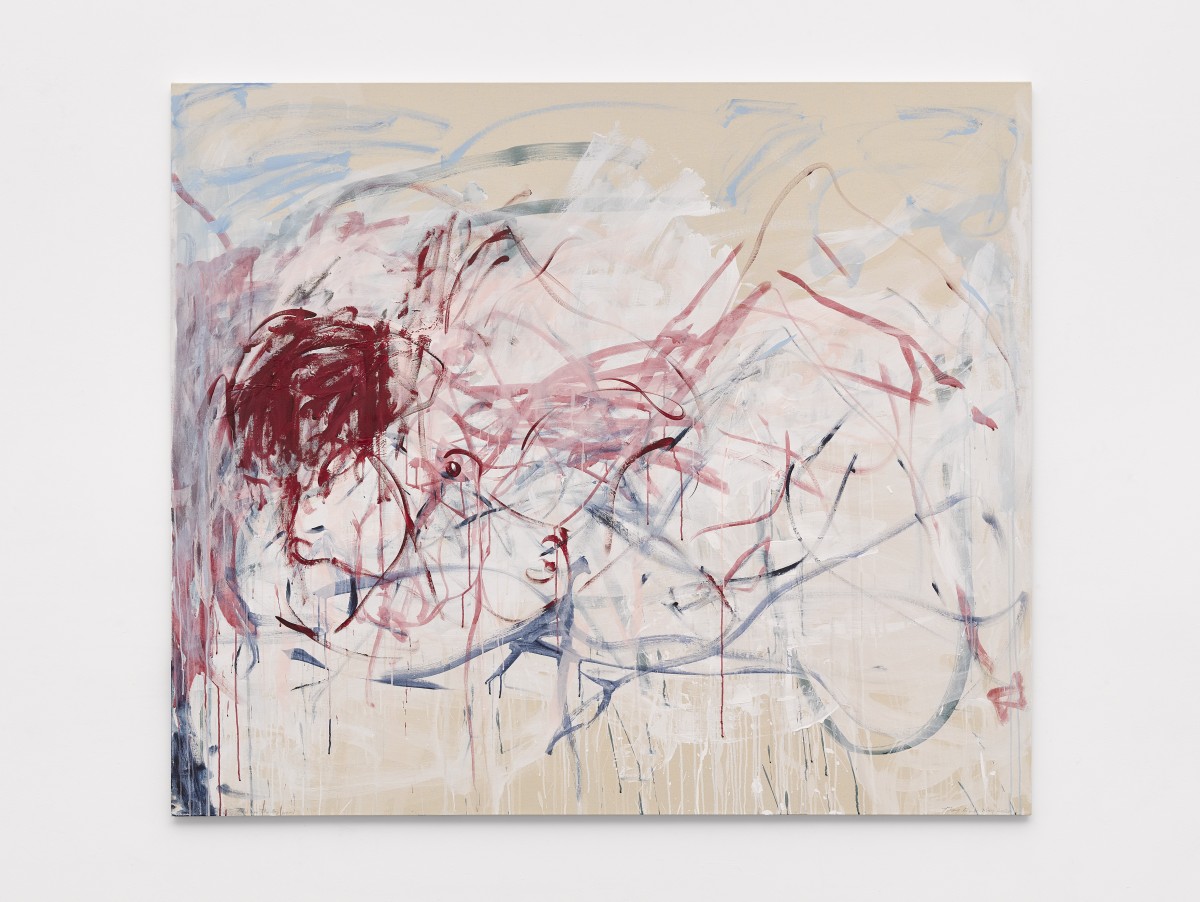
Tracey Emin’s work on display at the ‘In Dialogue’ exhibition at The Albertina in Vienna
Closer to home, I am yet to visit artist and activist Poulomi Basu’s powerful work, Fireflies at Autograph gallery in London. Poulomi is a powerful force, advocating for the rights of marginalised women through political documentary and complex storytelling. Her unflinching images are at once both dreadful and seductive. Curated by Bindi Vora, in this multimedia exhibition, Poulomi turns the camera on herself and her mother, to express patriarchal violence, resistance and solidarity with her female subjects. I am expecting a challenging and provocative exhibition.
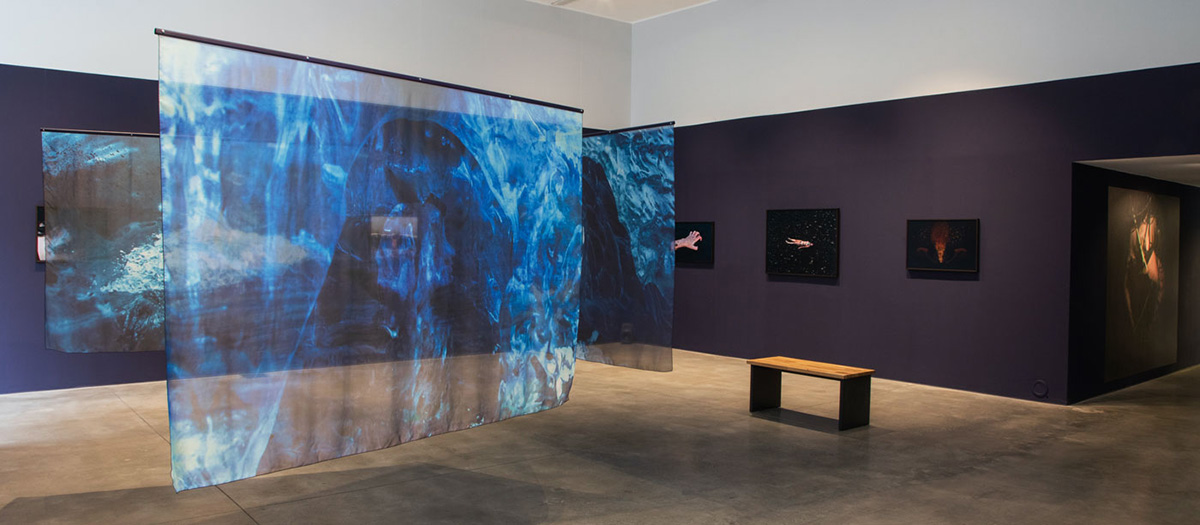
Poulomi Basu’s ‘Fireflies’ at Autograph
I’ll also be heading to a group show at the Nunnery Gallery in Bow, a free public gallery that supports local emerging artists. ME 2 U: A Collective Manifesto is a lesson in how to maintain a healthy positivity in the complex world we inhabit. It will include a young painter whose work I love, Lindsey Mclean.
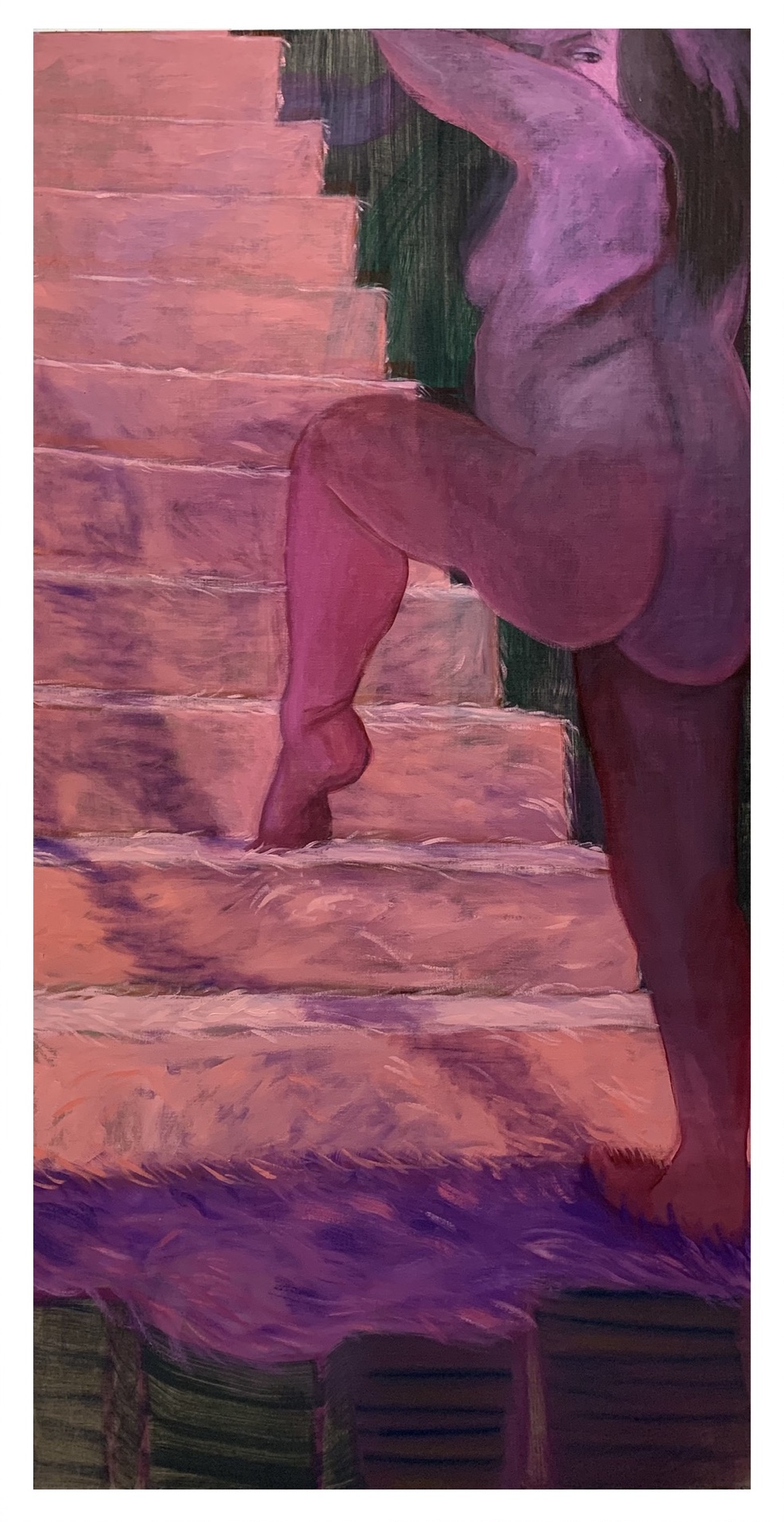
Lindsey Mclean’s ‘Faux Stairs’ showing at Bow Arts
Lindsey’s work disrupts the historical representation of femininity and women in painting. She uses recurring motifs such as fans, veils and feather boas to obscure the gaze within the work. Her paintings are rich and complex, mixing textures and jewel like colours.
Candida Gertler OBE, Co-Founder, Co-Director and Trustee at Outset Contemporary Art Fund
My best kept secret for the most rewarding visit to any Biennale is to go after the opening week! It’s true, you might miss the glamorous opening parties and the opportunity to see many familiar faces from around the globe, but you are abundantly compensated by the unparalleled experience of enjoying art the way it’s meant to be seen – with enough space to breathe!

Simone Leigh’s ‘Brick House’ on show as part of ‘The Milk of Dreams’ at the Venice Biennale
Having just returned from my first art trip with Outset Partners (a philanthropic body that grants experimental forms of funding to transformational projects) since the start of the pandemic, my fears of being confronted with the ‘same old, same old’ whilst in an entirely different, post-pandemic world were allayed. The 59th Venice Biennale, curated by Cecilia Alemani, addresses our collective desire to reconnect to the basic elements – even bringing a field of fragrant earth into the display- and embraces in some of the pavilions and external exhibitions technology in all its augmented and extended forms (a characteristic that defines our ‘new normal’) giving us a insight into the nee phygital era.
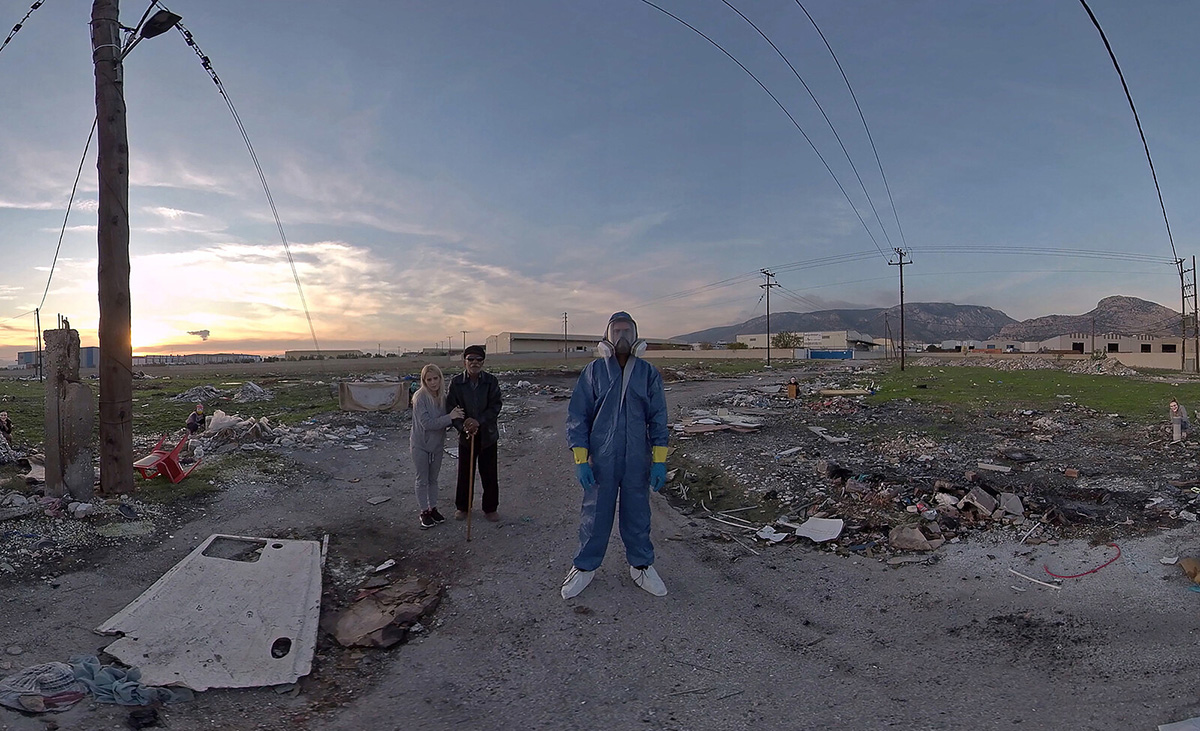
Loukia Alavanou, still shot from ‘Oedipus in Search of Colonus’
The Milk of Dreams exhibition in the Arsenale is the most elegantly curated exhibition I can remember in a long time. Each section of the long stretch of installations felt like a fully formed museum show in its own right, giving the – mainly female – artists the consideration and attention to detail that both they and the public deserve. Between the main exhibition, the national pavilions, and the collateral programme, just the right mix of well established and emerging artists were represented: from Barbara Kruger’s temple-like installation of warning texts Untitled (Beginning/Middle/End) in her signature style in the Arsenale, to the fantastic Greek Pavilion Oedipus in Search of Colonus by Loukia Alavanou. There – equipped with my goggles and a swivelling chair to anchor me – I took my front row, immersive seat to a mesmerising journey where ancient Greek tragedy meets futuristic virtual reality.
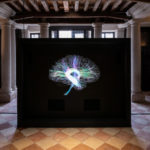
Although there is so much more to choose from the collateral programme – like the monumental Kiefer exhibition at the Palazzo Duclae; the wonderful Parasol Unit show at the Music Academy with Oliver Beer’s fantastic musical installation in the palazzo’s chapel; and the Ugandan and the Côte d’Ivoire Pavilions scattered around Venice – for me, the one unmissable exhibition is Udo Kittelmann and Taryn Simon’s exquisite Human Brains: It all Begins with an Idea at the Fondazione Prada.
Read more: A new photography prize for sustainability is launched
The design alone of this mammoth endeavour deserves a whole pride of golden lions, and the way the curation traverses the centuries of brain research through the lense of artists, illustrators, scientists and writers left me feeling equal parts satisfied and eager to learn more – like a student and a scholar simultaneously. Just as the entire biennale was a journey between the known and unknown, what more can one ask for
Clara Hastrup, artist
As I’ll be traveling to Copenhagen at the end of this month, the exhibition I’m really looking forward to seeing is Haegue Yang: Double Soul at Statens Museum for Kunst, Copenhagen, Denmark (until July 31). Yang has an incredible visual language and works with a wide range of materials to create her sculptures and immersive environments.
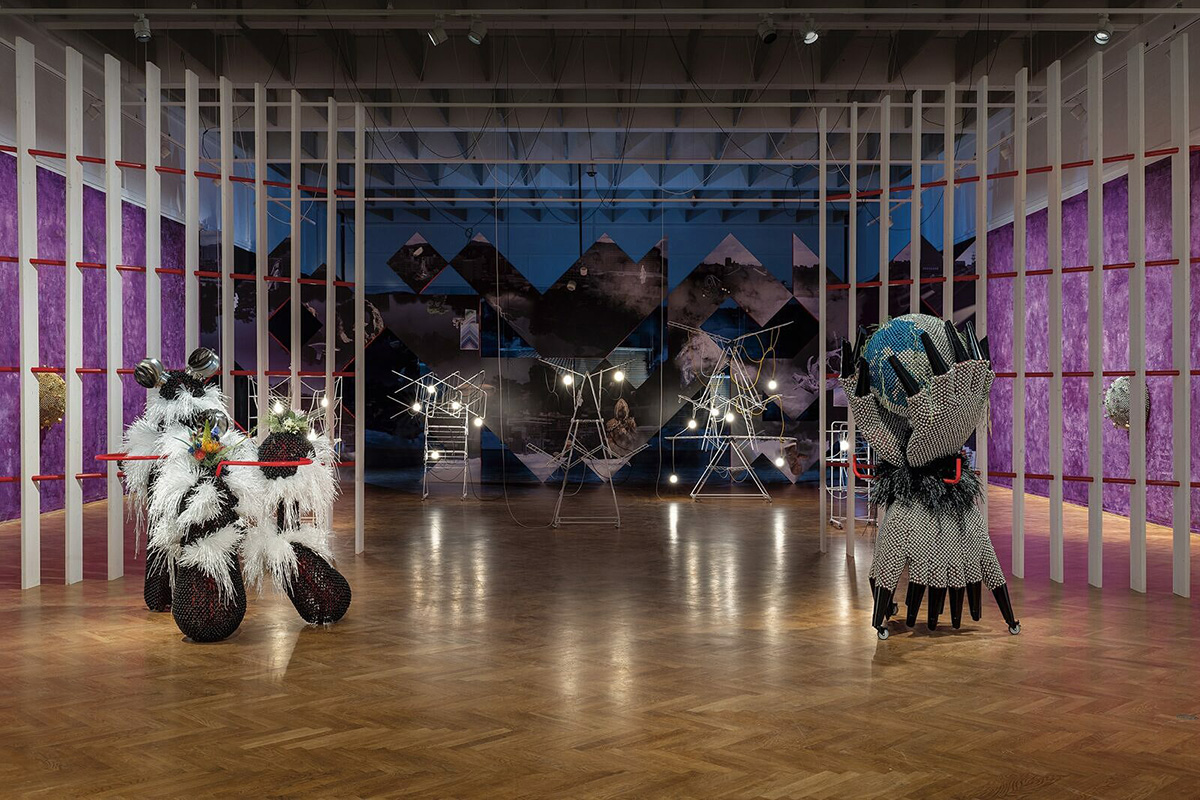
Haegue Yang’s ‘Double Soul’ at Statens Museum for Kunst, Copenhagen, Denmark
She uses everything from venetian blinds, bells, drying racks to pompoms and artificial flowers, transforming and abstracting these familiar objects into surreal and chaotic landscapes where you can either get lost or find new meanings.
LUX Editorial Team
This month we suggest visiting the White Box gallery at the Nobu Hotel London Portman Square. Currently on show are the works and submission statements of the winner and runners up of the Louis Roederer Photography Prize.

The Louis Roederer Photography Prize for Sustainability exhibition at The White Box space at Nobu Hotel London Portman Square. On show until May 29 2022.
The winner of the inaugural Prize is Akosua Viktoria Adu-Sanyah, who’s works come from her collection ‘Behold the Ocean’, where she focuses on the detrimental effects of ocean acidification. Runner up Jasper Goodall’s use of colour and light in his photographs, bring you into a fairy-tale like landscape evoking reverence for nature. Adu-Sanyah’s and Goodall’s works are juxtaposed with Sahab Zaribaf’s meditations on the relationship between humans and nature.

